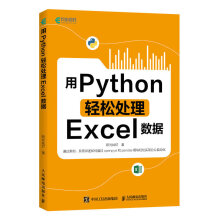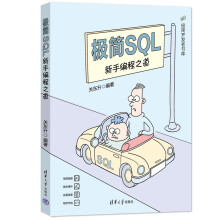chapter onegeneral view of international business(1)
国际商务概述
1.1what is international business?(1)
何谓国际商务?
1.2why do we study international business? (2)
为何学习国际商务?
1.3international business and international trade(3)
国际商务与国际贸易
1.4modes of international business(5)
国际商务形式
1.5the need for international business(6)
国际商务的必要性
1.6modern international business study(7)
现代国际商务研究
1.7why do companies engage in international business?(8)
公司介入国际商务之原因
1.8globalization(8)
全球化
1.9internationalization(12)
国际化
1.10the gatt and the wto(16)
关税与贸易总协定及世界贸易组织
1.11china in international business arena(26)
国际商务舞台上的中国
chapter twothe framework of international business(33)
国际商务的框架
2.1levels of economic integration(34)
经济一体化层次
2.2the triad(38)
三足鼎立 (三大区域)
2.3outside the triad(55)
三大区域外围
chapter threeculture and international business(69)
文化与国际商务
3.1what is culture?(69)
何谓文化?
3.2layers of culture(71)
文化层面
3.3reasons for the differences between cultures(73)
文化差异原因
3.4cultural conflicts in international business(76)
国际商务文化碰撞
3.5corporate culture and national culture(87)
企业文化与民族文化
3.6cultural conflicts and multinational companies (mncs)(91)
文化碰撞与跨国公司
chapter fourinternational business environment(97)
国际商务环境
4.1the economic environment(98)
经济环境
4.2the political environment(101)
政治环境
4.3the legal environment(103)
法律环境
4.4the sociocultural environment(106)
社会文化环境
4.5the technological environment(108)
技术环境
4.6the financial environment(109)
金融环境
4.7the information environment(110)
信息环境
4.8the internal environment(110)
内部环境
chapter fiveinternational trade(117)
国际贸易
5.1what is international trade?(117)
何谓国际贸易?
5.2how did international trade start?(119)
国际贸易起源
5.3the benefits, structure of, and reasons for international trade(120)
国际贸易的优点、 结构及原因
5.4international trade in the framework of the world economy(121)
世界经济框架中的贸易
chapter sixinternational marketing(124)
国际营销
6.1the nature of marketing(124)
营销本质
6.2domestic marketing and international marketing(126)
国内营销与国际营销
6.3reasons for marketing abroad (127)
海外营销原因
6.4market(128)
市场
6.5international marketing environment(134)
国际营销环境
6.6marketing strategy(135)
营销战略
6.7integrated marketing(137)
整合营销
6.8direct marketing(137)
直接营销
6.9positioning(138)
定位
6.10differentiation(141)
区别营销
6.11personal selling(142)
推销
6.12aida (144)
“爱达”
6.13fabv(145)
“发步”
6.14swot(145)
“思我特”
6.15branding (146)
品牌策略
6.16unique selling proposition (usp)(148)
独特的销售方式
6.17wordofmouth (149)
口碑效应
6.18marketing mix—the 4 ps(149)
营销组合: 4p
chapter seveninternational finance(172)
国际金融7.1the role of central banks(172)
中央银行的作用
7.2international monetary system (ims)(173)
国际货币体系
7.3balance of payments (bop)(185)
国际收支
7.4foreign exchange(188)
外汇
7.5us dollar, british pound, the euro, and rmb(199)
美元、 英镑、 欧元、 人民币
7.6international money markets(203)
国际货币市场
7.7eurobond market(204)
欧洲债券市场
7.8international stock markets(205)
国际证券市场
chapter eightinternational accounting, auditing, and tax(212)
国际会计、 国际审计和国际税收
8.1general view of international accounting(212)
国际会计概述
8.2international accounting and international business(213)
国际会计与国际商务
8.3the field of international accounting(214)
国际会计的领域
8.4classifications of accounting systems(215)
国际会计制度的分类
8.5principal accounting differences between countries(216)
各国之间会计的主要差别
8.6international accounting harmonization(218)
国际会计协调
8.7the international accounting standards board (iasb, formerly iasc)(219)
国际会计标准委员会
8.8international transparency and disclosure(220)
国际会计透明与公开
8.9foreign currency translation(224)
外币换算
8.10accounting for changing prices(227)
变化价格会计
8.11international financial statement analysis(229)
国际财务报表分析
8.12international auditing(231)
国际审计
8.13chinas accounting and auditing(242)
中国的财会与审计
8.14international taxation(244)
国际征税
chapter ninemultinational enterprises(257)
跨国企业
9.1the nature of multinational enterprises (mnes)(257)
跨国企业性质
9.2characteristics of an mne (260)
跨国企业特点
9.3the reasons for companies becoming multinational enterprises(260)
公司转型为跨国企业之原因
9.4using the oecd guidelines for multinational enterprises(261)
经济合作与发展组织准则用于跨国企业
9.5the impact of multinational enterprises(262)
跨国企业影响
9.6multinational enterprises and trade theory(264)
跨国企业与贸易理论
9.7the role and place of multinational enterprises in export
processing zones (epzs)(266)
跨国企业在出口加工区的作用与地位
9.8mnes in developing countries(271)
发展中国家的跨国企业
9.9chinas multinational enterprises(271)
中国的跨国企业
chapter tenforeign direct investment (fdi)(279)
对外直接投资
10.1the nature of fdi(280)
对外直接投资性质
10.2reasons for fdi(282)
对外直接投资原因
10.3theories of fdi(283)
对外直接投资理论
10.4advantages of fdi(284)
对外直接投资优势
10.5strategies of fdi(285)
对外直接投资战略
10.6costs of fdi(287)
对外直接投资成本
10.7diversification(288)
多种经营
10.8fdi decision making(289)
对外直接投资决策制定
10.9fdi inside and outside china(300)
中国境内外直接投资
10.10chinas fdi meets challenges(301)
中国的对外投资面临挑战
chapter elevenhuman resource management (308)
人力资源管理
11.1general view of human resource management (hrm)(308)
人力资源管理概述
11.2what is international hrm?(309)
何谓国际人力资源管理?
11.3country nationals(311)
国民
11.4global staffing policies and strategy(314)
全球员工配备政策与策略
11.5training and development(317)
培训与发展
11.6expatriates(323)
外派人员
11.7compensation(327)
报酬
11.8labour relations(331)
劳资关系
11.9the role of union(333)
工会的作用
11.10organization structure of the mne(334)
跨国企业组织结构
11.11culture shock(335)
文化冲击
chapter twelveinternational logistics(339)
国际物流
12.1nature of logistics(339)
国际物流性质
12.2new concept of 21st century logistics(342)
21世纪国际物流新概念
12.3components of a logistics system(343)
物流系统组成部分
12.4the role of logistics in the economy(345)
物流在经济中的作用
12.5logistics in the organization(345)
企业中的物流
12.6domestic logistics and international logistics(346)
国内物流与国际物流
12.7key logistics activities(348)
物流的主要内容
12.8when does international logistics occur?(350)
什么情况下出现国际物流?
12.9international sourcing(350)
国际采购
12.10managing materials flow(351)
材料流动管理
12.11inventory(352)
存货
12.12warehousing(357)
仓储
12.13transportation in logistics(363)
物流环节中的运输
chapter thirteenelectronic commerce (369)
电子商务
13.1what is electronic commerce (ecommerce, ec)?(369)
何谓电子商务?
13.2a brief history of ec(372)
电子商务历史概述
13.3classification of the ec field by the nature of the transactions(373)
电子商务交易本质分类
13.4ec applications(373)
电子商务应用
13.5advantages and disadvantages of ec(375)
电子商务之利弊
13.6the internet, the intranet, the extranet, and the world wide web(376)
因特网、 内联网、 外联网及万维网
13.7electronic data interchange (edi) and the internet(379)
电子数据交换与因特网
13.8types of interorganizational systems(380)
组织内部系统种类
13.9ecommerce in the international trade arena(381)
国际贸易环境中的电子商务
13.10emarketing (em)(385)
电子营销
references(397)
参考文献
展开










